SDEA Spotlight: Tan Beng Tian
by SDEA
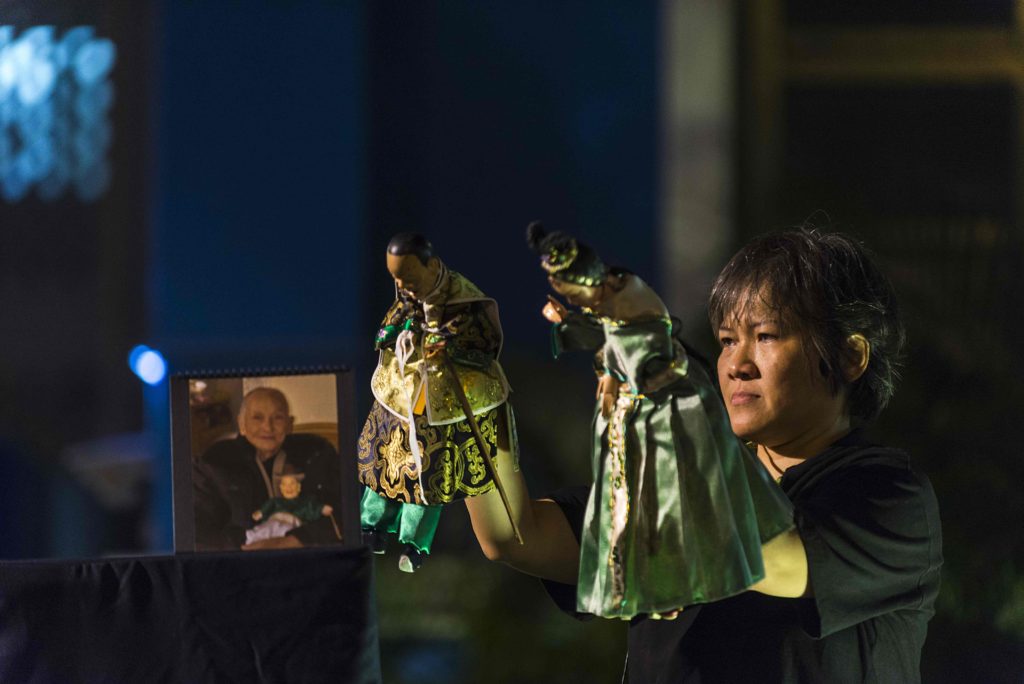
SDEA Spotlight is a series of short interviews with SDEA members that peel back the curtain behind their practice, their beliefs about arts and drama education and their influences.
A recipient of JCCI Singapore Foundation Culture Award 2005, Tan Beng Tian co-founded The Finger Players in 1996. She has also been promoting theatre making and passing on her puppetry knowledge through workshops and talks. She has been an SDEA member since 2015.
1. What are you working on at the moment?
I am currently assisting my colleague, Hui Bin, in the designing and constructing of puppets and props for our upcoming musical – Itsy. This is our first time staging a full-length musical at Victoria Theatre and we need to build puppets of various sizes to play with perspectives as well as duplicate props for an army of spiders and soldiers. Talking about this is giving me the jitters already...
2. What’s the direction of your work? Has it changed over the years?
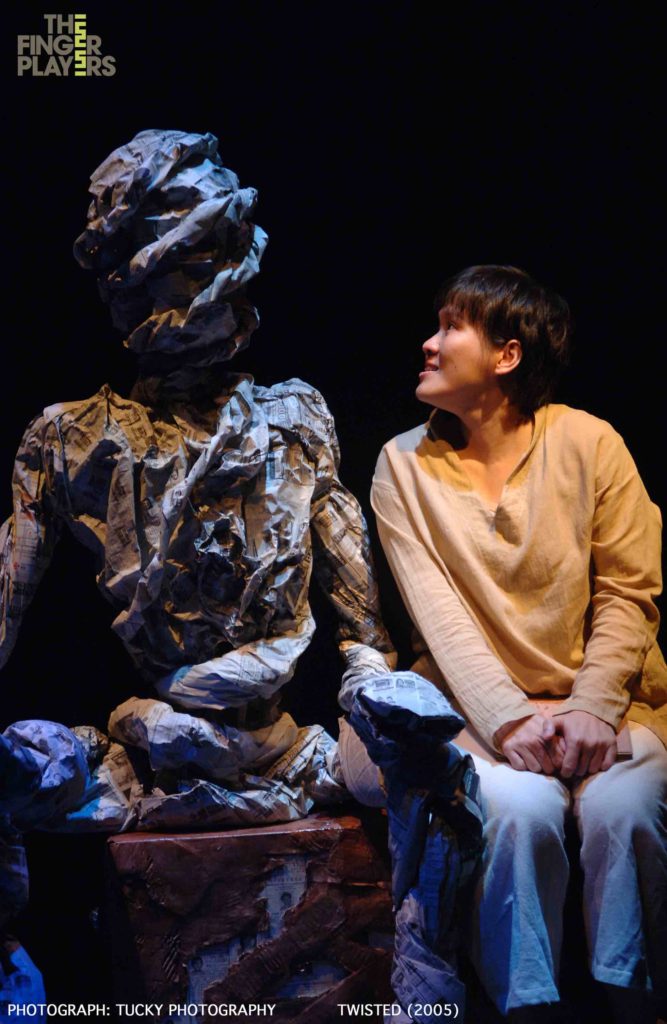
For the past few years, whether if I am performing, designing and building of puppets, teaching or directing, I have been doing it for the sake of completing that project. Currently, doing productions to be showcased on stage is beginning to lose its lustre for me. It has become a job that is not as meaningful as before. I constantly question myself “WHY” am I doing this? I shifted my focus from doing main season shows to reach out shows a few years ago. I now work more on community outreach such as bringing shows to elderly homes and SPED schools and conducting workshops for seniors at activity centres as well as for members at Alzheimer’s Disease Association.
This year, I found a new boost of excitement working on sensory friendly theatre. This is all thanks to Esplanade’s PLAYtime series. I have the opportunity to be the dramaturg of two PLAYtime productions and I have learned so much about theatre for special needs audience. The PLAYtime team in Esplanade is putting their focus on sensory friendly theatre and I am so happy to be part of this.
This is a very new field for me; it is something I have not thread on before. There is so much to learn – I have to learn to understand more about disabilities and I have to learn how to modify my performances/directing/teaching/etc to have the most effective communication with people of special needs. There are no instruction books that teach you how to do it. I have been learning through trial-and-error and past experiences collected. The lustre that has gone missing is starting to brew again.
3. What is a dream project that you hope to do?
My dream project will happen in 2019. This project is inspired by a friend of mine – Peter Sau. Peter is embarking on a journey on Disability Arts in Singapore. His journey is to start training people with disability to be professional theatre makers. As a follow-up of my new direction in theatre making, I am planning on staging a production that puts together the community of special needs and community of regular people. Can there be a true total integration of the two communities? Or will it be a on-the-surface kind of integration? This is an issue I wish to explore in my dream project.
On a separate note, I do have a literally “dream” project – that is to stage a puppet show with the Taiwanese rock band May Day as collaborators. And this cannot be carried out in a huge arena; it has to be done in a medium-sized theatre because I like the intimacy of small audience space. Of course profit and loss comes to mind, that’s reality; therefore, I will carry this out in my dream.
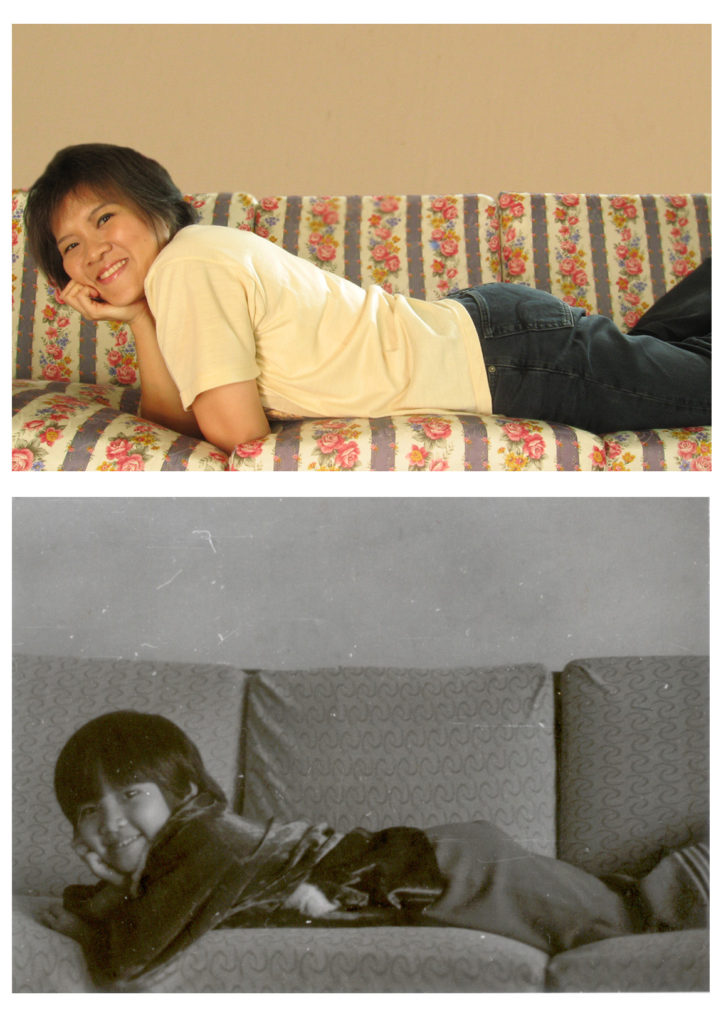
4. How did you start out doing what you do?
I started out doing what I do by chance. I was asked to join the school’s drama club by my favourite literature teacher, Mrs Perry. I didn't know why Mrs Perry approached me, as I was the quiet type of student in class, the very shy type. My voice quivered when I had to read out loud in class. I agreed to join because I didn't want to turn down my favourite teacher. I didn't know what drama was and I entered the club not knowing what I will be doing. Apparently, there was a shortage of students in the drama club and the club was staging a locally written script Mei Lee and the Seven Hawkers. Mrs Perry needed the seventh hawker and that was why I was recruited. Although I was taking my ‘A’ level at that time, I didn’t mind the extra hours spent in making my own set of Dopey ears (that was how I started making props actually) and memorizing the stage directions (my character has no spoken lines which suit me very well). I realized how powerful theatre is during my first entrance on stage. The seventh hawker was a silent and clumsy character. I was to bump right into the sixth hawker upon my first entrance on stage. I did that and the audience reacted with laughter. The reaction of the audience immediately got rid of the butterflies in my stomach. I discovered that what I did on stage could be communicated to an entire room of people and that action could in fact affect so many people. This feeling was awesome.
5. How do you keep your work fresh in a long running production?
A suggestion would be to treat every show as the first show. But to be honest, is it possible to literally do that? This could be done if I have the memory of Dory the fish. The solution I have is to open up all senses and heighten awareness. Knowing very well that the show is a repeated show, I would focus my awareness on finding differences within the repetition – for example, the scent in the changing room, the mood of the fellow cast and production team, the mood of the audiences, the space on stage, my body condition, et cetera. It’s amazing how many ‘new’ things one can detect if one opens up the awareness and senses.
6. What do you think makes a perfect drama educator?
Sincerity, willingness to give and take and enjoyment.
7. In one word, sum up your drama education journey.
Illuminating.
8. Why is drama important? Why should it be taught in schools?
Drama is role-playing. It allows us to put ourselves in other people’s shoes and I am not referring just to acting and imagining – drama involves researching, analyzing, writing, designing, building and managing just to name a few. It gives us the ability to look at ourselves, to look at others, to see things at many levels and from multiple perspectives. Drama actually encompasses history, social studies, science, mathematics, design and technology, economics, languages, physical activities and arts. It should be taught in school so that students can apply these subjects to good and practical use.
9. Who was the drama educator that has the most impact on you?
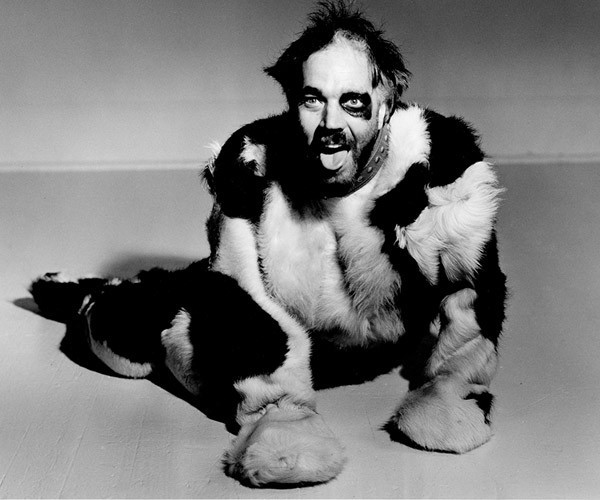
The drama educator that has the most impact on me would be the late Mr. Bruce John Keller (1955 – 2003). Mr Keller was an actor, writer and director from Australia. He was famous for Puppy Love, a children’s play he wrote and performed in.
I attended his acting workshop back in 1996. It was a one-week workshop and in that workshop, he taught us a breathing technique called the ‘Dinosaur Walk’. The ‘Dinosaur Walk’ exercise is very meditative. It also strengthens the core muscles and as well as one’s groundedness.
Mr Keller was a jovial and bubbly man. He carried a huge potbelly and was a delightful sight to watch when he did the ‘Dinosaur Walk’ – very cute!!!! He showed us that his potbelly was just an ‘illusion’ when he did forward rolls and other miscellaneous physical movements.
In 2003, Mr Keller died of complications from pancreatic cancer. He was 48 years old. Although I knew him very briefly and did not stay in touch with him since 1996, he pops into my head once in awhile. It isn’t just the ‘Dinosaur Walk’ that l remember him for, it was his philosophy of playing and having fun on stage that leaves a deep impression on me. Till now, I am still practicing this philosophy and passing it down to whomever I teach.
**
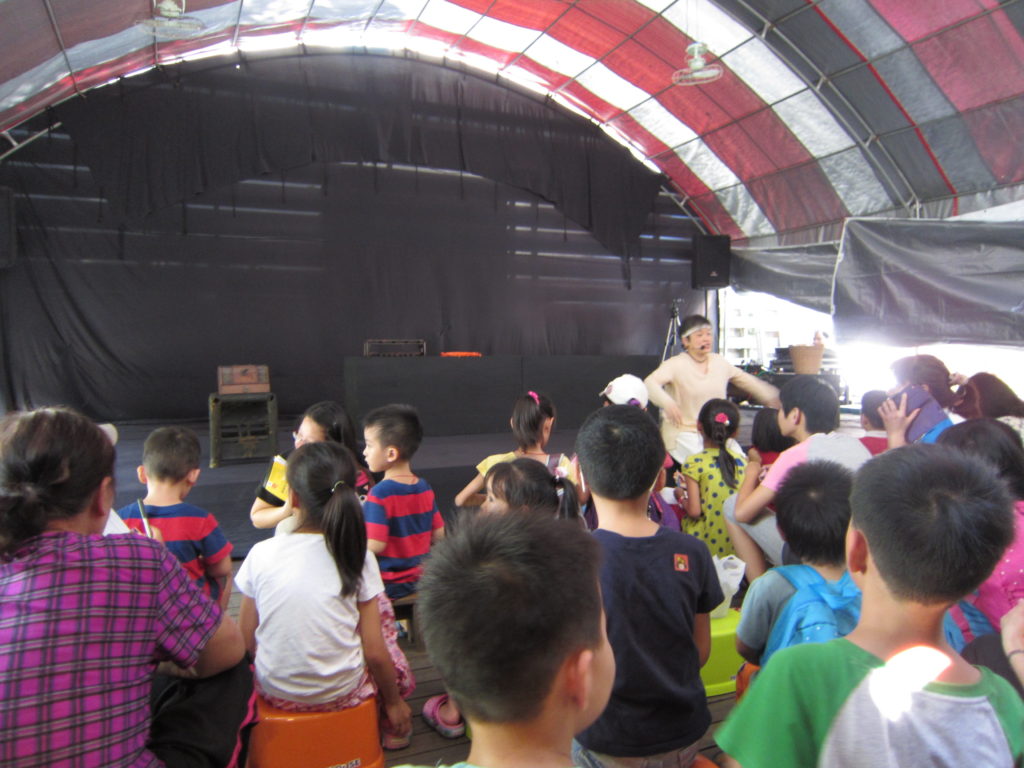
10. What is your most memorable moment in the classroom/on stage?**
My most memorable moment on stage was getting heat stroke while performing. We presented Angels in Disguise as one of the programmes of the Yunlin International Puppet Festival 2015 in Taiwan. The performing area was a makeshift stage with a temporary tent. The weather was sunny and hot. The air turned really hot when the stage lights came on. I started experiencing a tremendous headache halfway through the show. My head kept on pounding and my brains were like trying to burst out of my skull in order to get out of the heat. There was also this lump of air at my throat. I wasn’t sure if it was a burp that’s stuck in the throat or the undigested lunch that was trying to escape the heat in my stomach. I suppressed that lump of air and endured the headache till the end of the post-show activity on stage. While the audiences were invited back to their seats, I sat down at the edge of the stage smiling away at the audience while my head was spinning away. It was only when the audiences started to get up to leave that I slipped away to the washroom to empty the contents in my stomach. The warm lemon barley drink that the organizer made for me helped stop the spinning in my head.
I keep revisiting this scenario and wonder what will happen if I wasn’t able to endure till the show ended. Will I faint or throw up on stage in front of all the audiences? I did think of finding opportunity to leave the stage to do my throwing up but the show did not allow any free time. We, the three casts, were always doing something for the duration of the entire show. Therefore, the only option for me is to suppress vomiting till the show ends. I guess that’s the responsibility of an artist – whatever that happens, the show must go on. And maybe it is this responsibility that pushed the limit of my endurance. I remember that while performing, the pain was bearable because acting and manipulating the puppet helped to distract me. The discomfort and pain was felt full-scale only when the performance ended.
11. Share a drama activity that you love to do.
Improvisation is my favourite drama activity. It’s top on my list. I used to fear it because it gave me stress – that was because I tend to overthink and was too conscious of how other people perceive my actions. But ever since I let my impulses lead the way, this activity has become very fun.
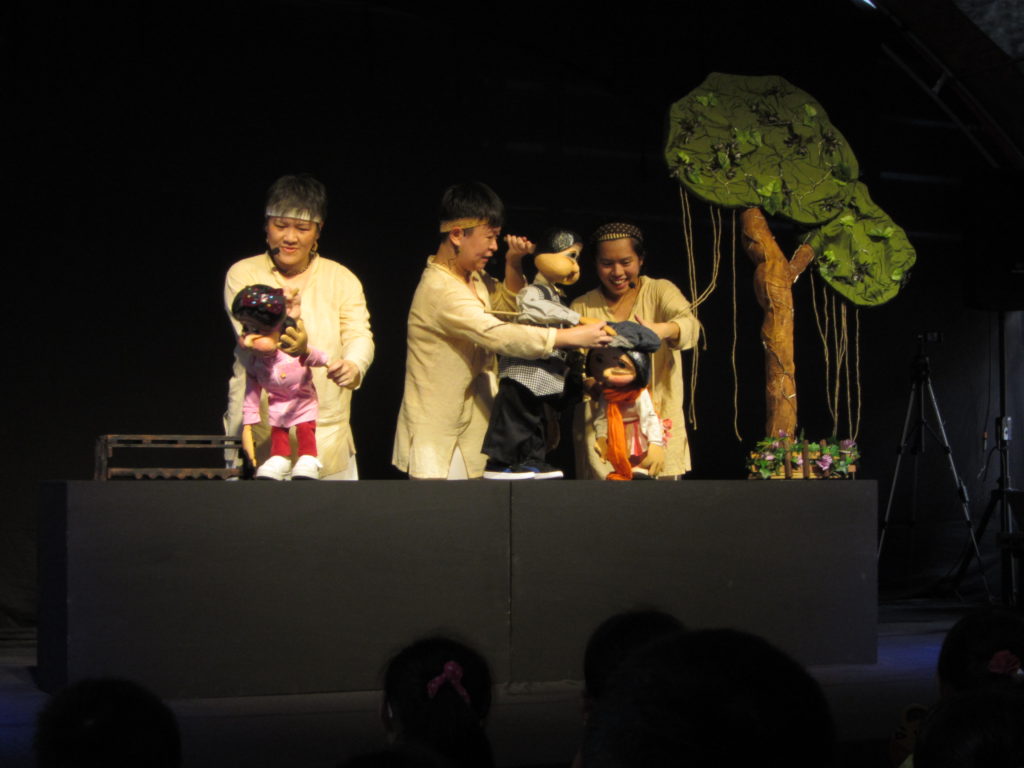
12. What do you hope to see in Singapore's drama/theatre landscape in future?
I hope to see that theatre will one day eventually become a ‘staple food’ for every individual’s daily diet.
Tickets for Itsy will be available for sale in January 2017 at all Sistic outlets.
*Photo Credit: Tuckys Photography*



